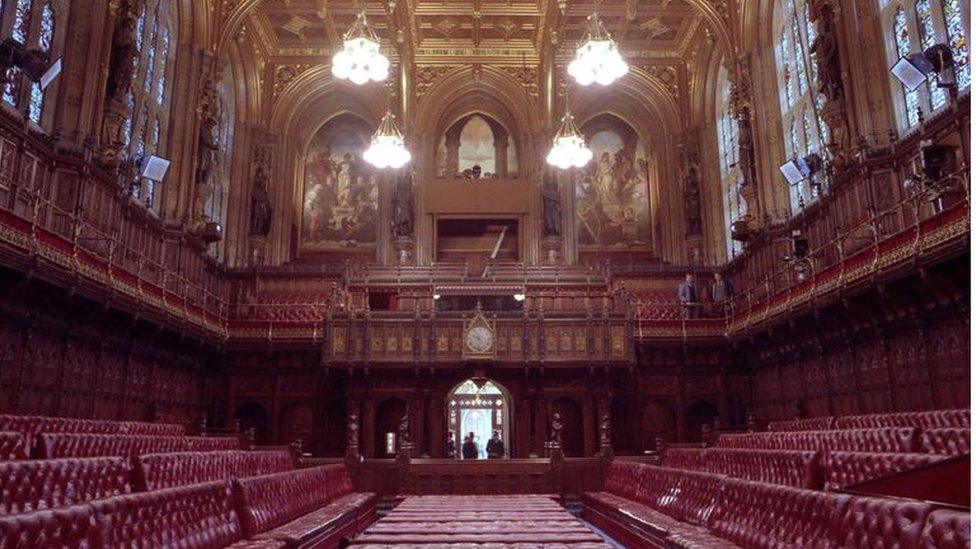What next for the Lords?
- Published

Apocalypse now, in Their Lordships' House?
Since the election, the government has lost 23 votes in the House of Lords, on pub companies, childcare, criminal court charges, electoral registration, city devolution, charities, psychoactive substances and, most famously on the chancellor's now-ditched tax credit cuts.
Now ministers are striking back. If today's Times is correct and we will know after a statement in the Lords later today, their furious reaction to the Lords sending back the tax credit SI for the Commons to reconsider is, er, to insist that in future they can only, er, send back SIs for MPs to reconsider. That'll show them!
Secondary Legislation, AKA Statutory Instruments, is a lower form of legislative life, regulations made under existing laws. Some have to be debated in both houses, some are only debated if someone objects to them, and some are not debated but can be voted on, if there are objected to.
So, for example, this week's fracking in national parks SI, external was made under Section 50 of the Infrastructure Act, which amended the 1998 Petroleum Act. This was not debated in the Commons but in a Delegated Legislation Committee, external and it was discussed for a little over an hour, external in the Lords parallel chamber, the Moses Room, on November 24th. The angst that the passage of that measure generated makes the point that SIs are frequently pretty important, and the tax credit one was hyper-important. In fact the best procedural argument against it was that the proposed changes were far too significant to be pushed through in that way, and probably merited full-dress legislation.

Most peers regard the ability to kill SIs as a pretty blunt instrument, and would prefer the ability to throw them back to the Commons once, if they thought MPs should reconsider.
It's worth repeating the point; peers didn't kill the tax credits changes, indeed they voted down an attempt by the Liberal Democrats to do so. They did just what the government is now seeking to make them do and sent the SI back to the Commons.
So the solution proposed by the veteran Tory fixer, Lord Strathclyde, is not exactly a mass guillotining of inconvenient aristos. His preferred solution, of amending the 1946 Statutory Instruments Act, probably commands a fair amount of support across the Upper House
So I'm not sure that we're going to see a constitutional battle royal, with the Parliament Act being employed to force the change into law. If the government has to be careful, it's for a slightly different reason; once you start playing with the constitutional conventions governing relations between Lords and Commons, all kinds of consequences might follow. To misquote the great Ernie Bevin, once you open that Pandora's box, you don't know what Trojan horses might jump out.